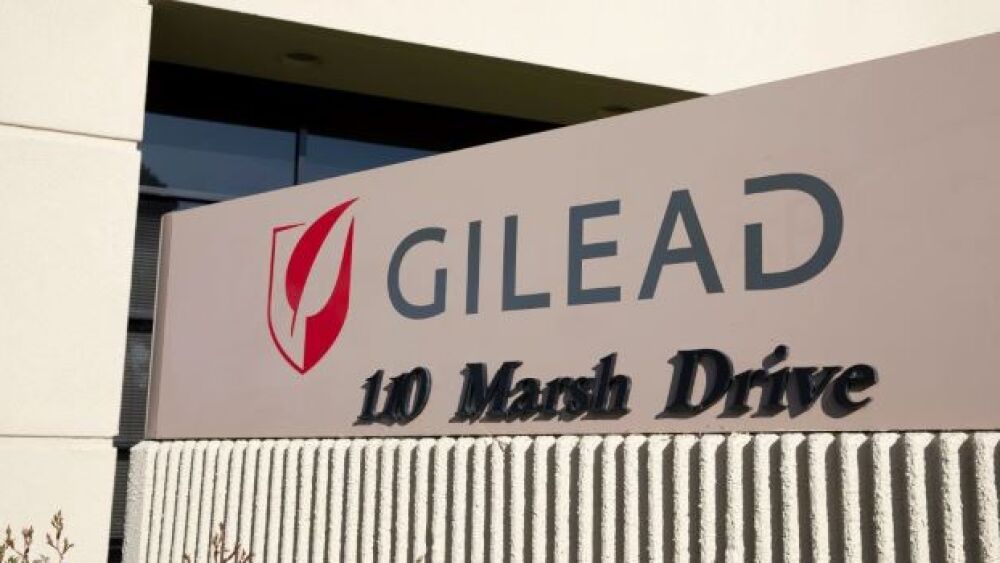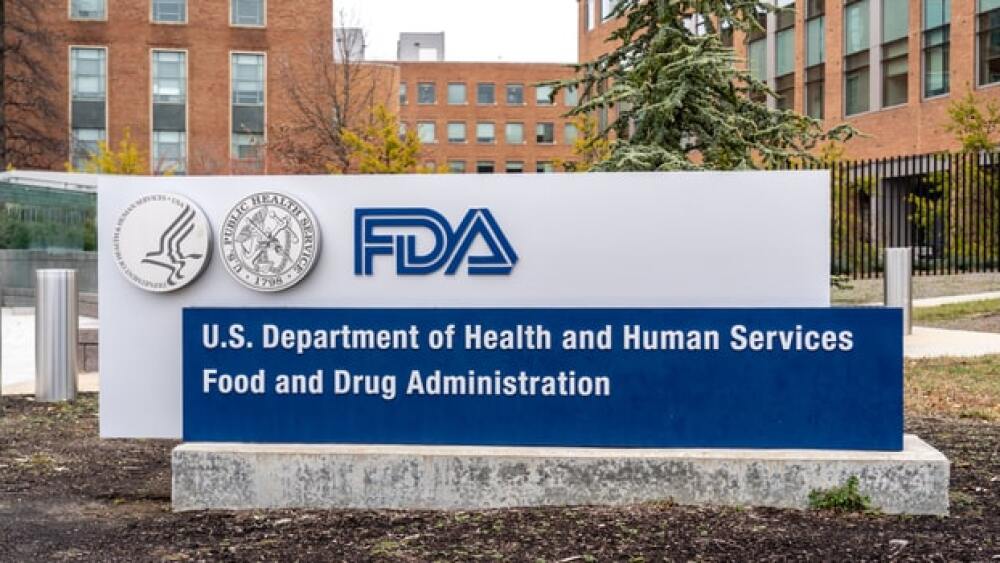Gilead Sciences posted some good news: a late-stage study of its antibody-drug conjugate Trodelvy shows promise in slowing the progression of the most common forms of breast cancer.
Liu Guanguan/China News Service via Getty
One week after the U.S. Food and Drug Administration rejected its HIV treatment over vial concerns, Gilead Sciences posted some good news in oncology. A late-stage study of its antibody-drug conjugate Trodelvy shows promise in slowing disease progression in some of the most common forms of breast cancer.
Trodelvy (sacituzumab govitecan-hziy) met its primary endpoint in the Phase III TROPiCS-02 study of patients with HR+/HER2- metastatic breast cancer who received prior endocrine therapy, CDK4/6 inhibitors and two to four lines of chemotherapy. Trodelvy demonstrated a statistically significant improvement in progression-free survival (PFS) versus physician’s choice of chemotherapy. The Phase III study targeted a 30% reduction in disease progression or death risk. In its announcement, Gilead Sciences did not provide the data to indicate where Trodelvy stood in this study target. The company noted that detailed results from TROPiCS-02 are expected to be presented at an upcoming medical conference.
Gilead’s Trodelvy is a first-in-class antibody and topoisomerase inhibitor conjugate directed to the Trop-2 receptor, a protein commonly expressed in multiple types of epithelial tumors.
In its announcement, Gilead Sciences said the primary endpoint results remain consistent with the data seen in a Phase I/II IMMU-132-01 study involving a subset of HR+/HER2- metastatic breast cancer patients. An interim analysis of the key secondary endpoint of overall survival demonstrated an improving trend. The company said patients will be followed for subsequent overall survival analysis.
The safety profile for Trodelvy remained consistent with prior studies. According to Gilead, no new safety concerns emerged in this patient population.
HR+ and HER2- breast cancer account for approximately 70% of all breast cancer cases. Many of these patients with advanced forms of the disease can develop endocrine resistance. Merdad Parsey, M.D., Ph.D., chief medical officer of Gilead Sciences, said the data from this study is showing promise in these difficult-to-treat patients. However, he noted that Trodelvy had demonstrated consistent activity in this area.
“We are evaluating the data and will explore potential pathways with regulatory authorities to bring Trodelvy to this group of patients. As we work to expand the patient benefit of Trodelvy beyond its current indications for second-line metastatic triple-negative breast cancer and accelerated approval in second-line metastatic bladder cancer, we are pursuing studies across multiple tumor types and earlier lines of therapy,” Parsey said in a statement.
Trodelvy comes with a boxed warning for severe or life-threatening neutropenia, a low number of white blood cells and severe diarrhea.
Gilead gained Trodelvy through its $21 billion acquisition of Immunomedics. The ADC, which has been approved to treat adult patients with unresectable locally advanced or metastatic triple-negative breast cancer and adult patients with locally advanced or metastatic urothelial cancer, is expected to be a cornerstone of Gilead Sciences’ oncology pipeline.
Featured Jobs on BioSpace





